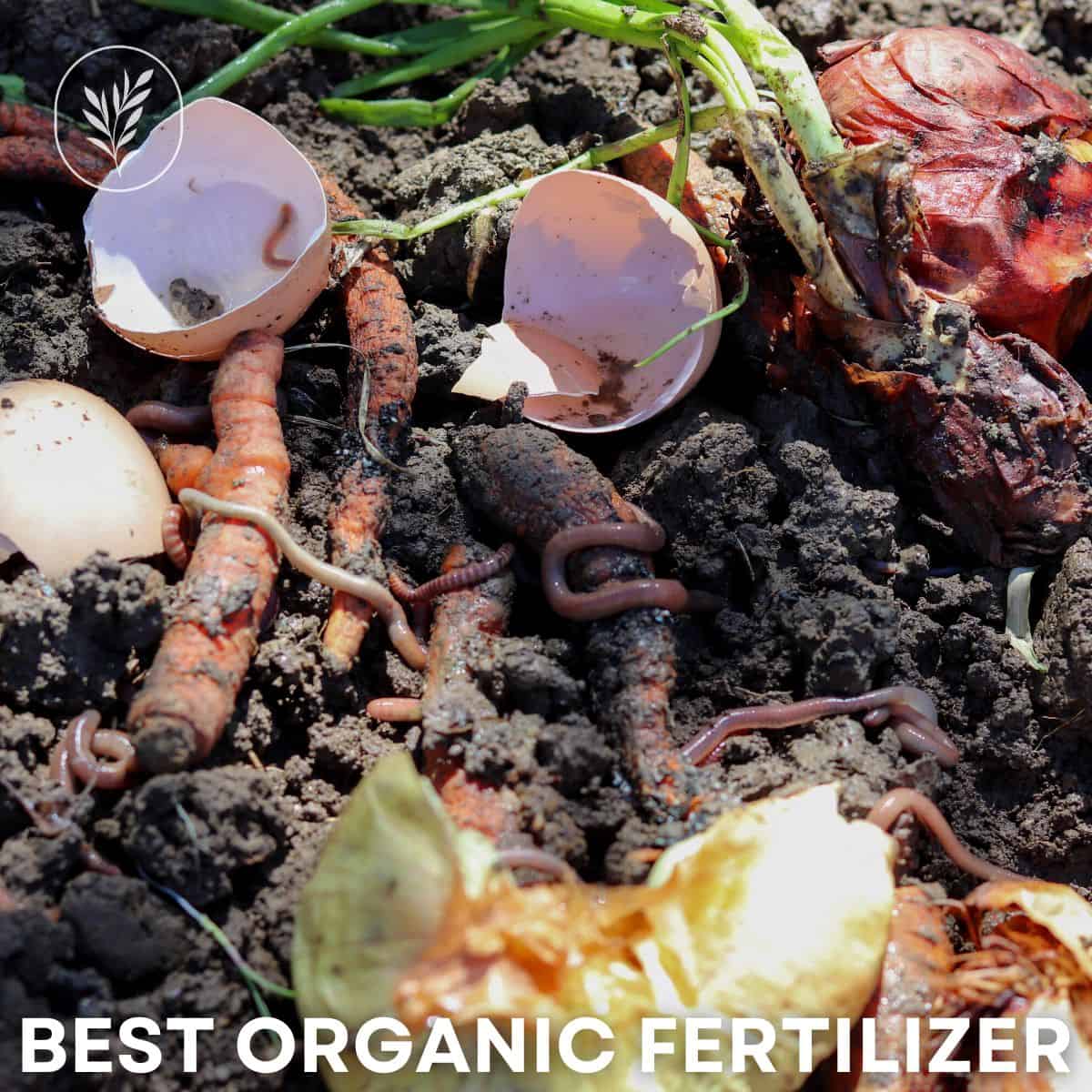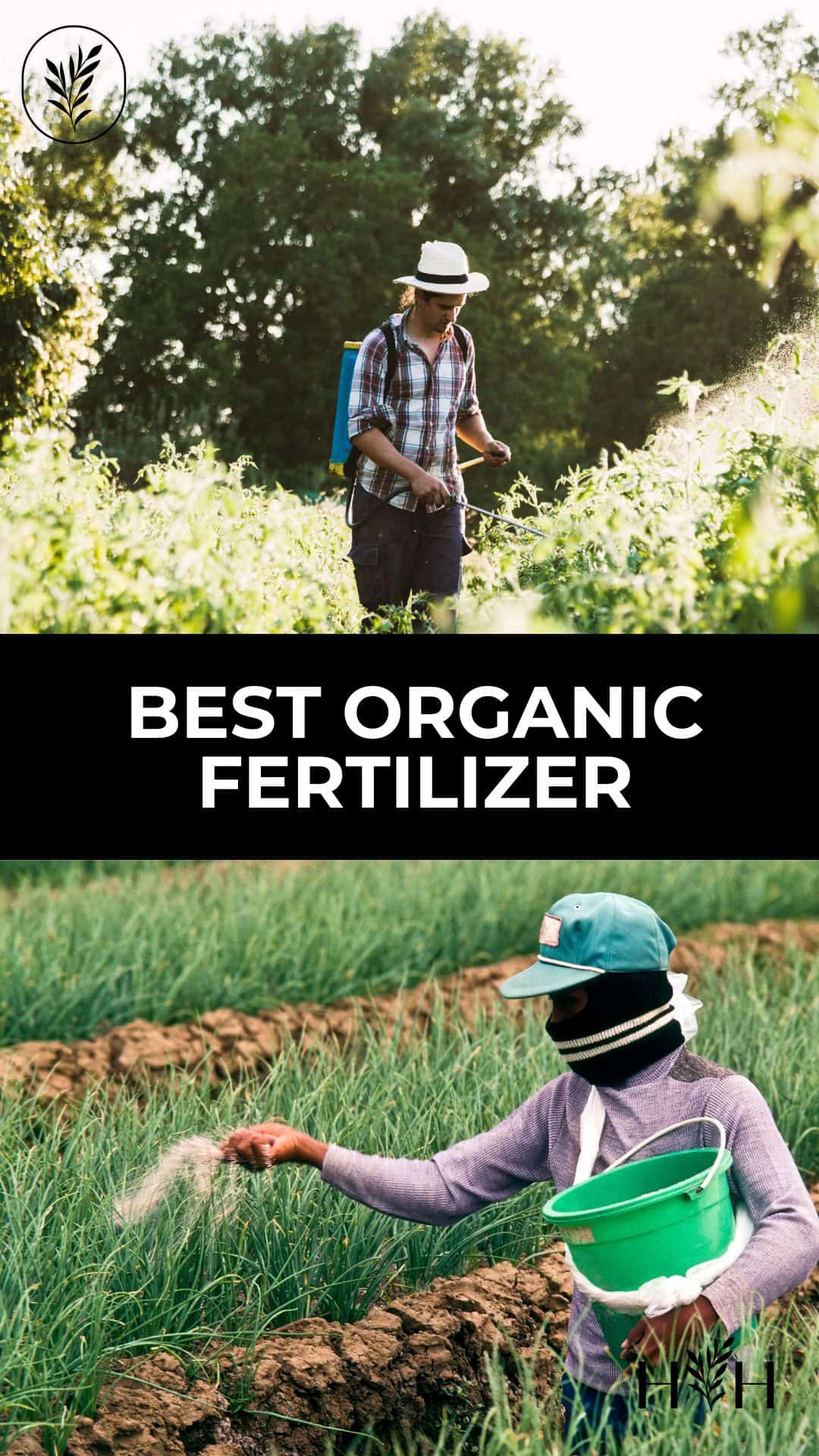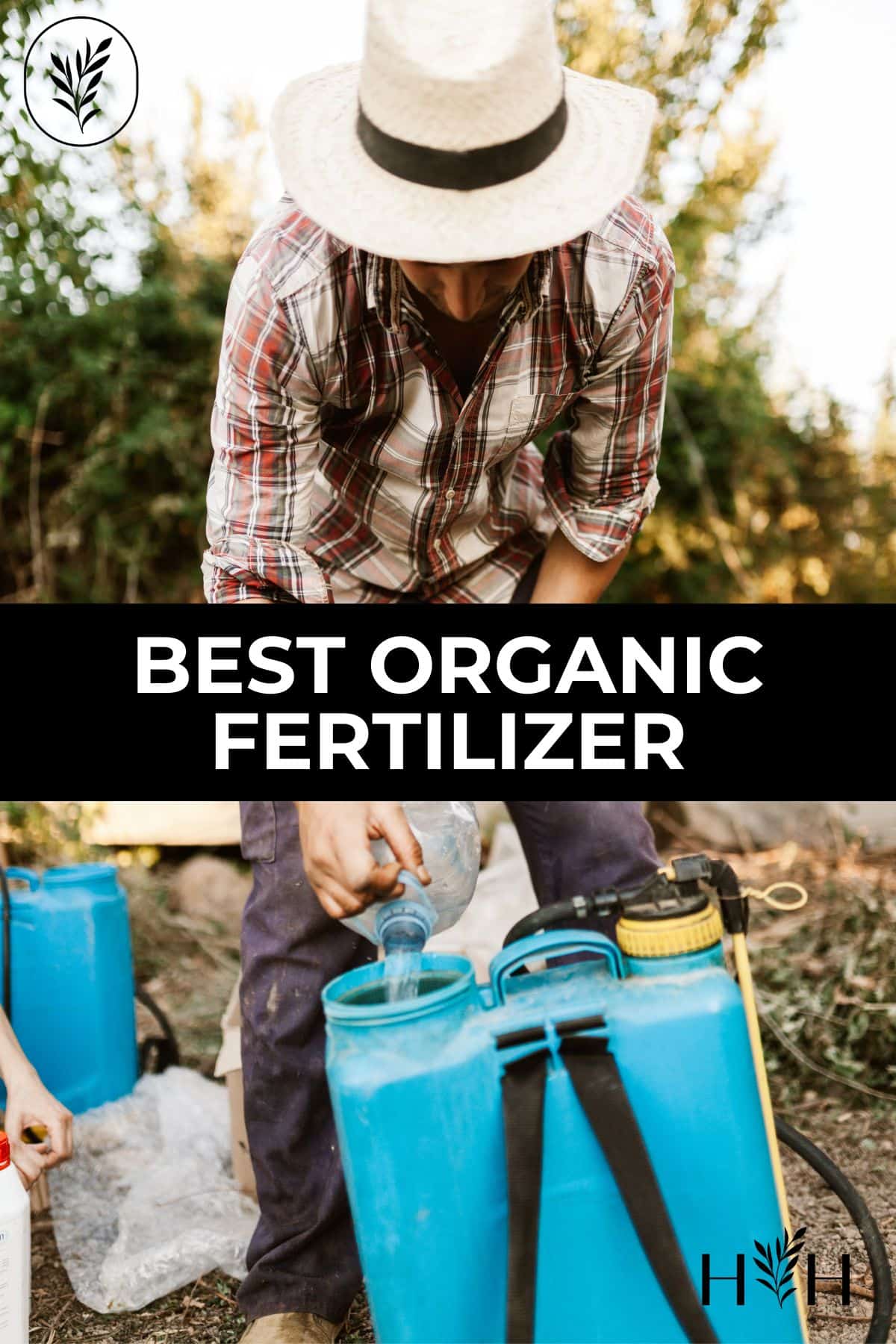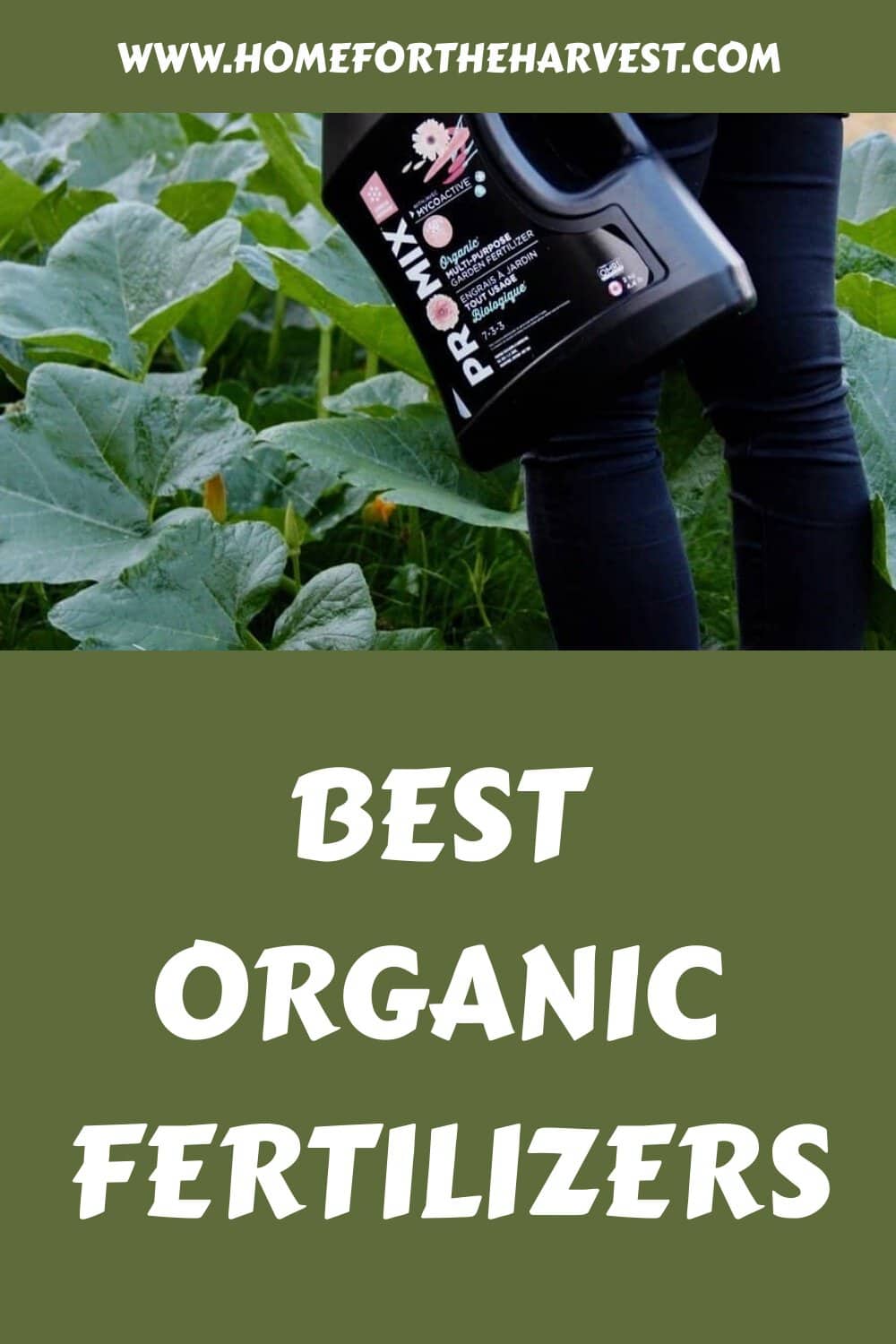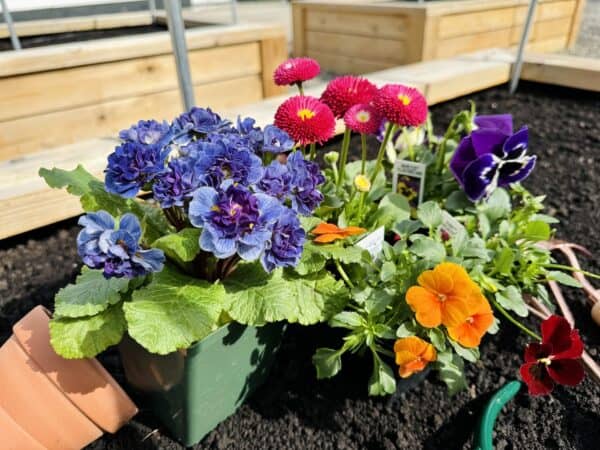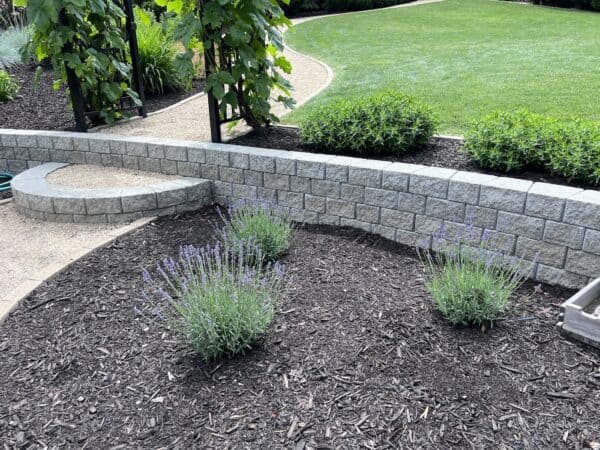Where would our gardens be without great organic fertilizer!? This article explains the best organic fertilizer options for feeding your plants naturally.
The best organic fertilizers use minerals derived from naturally occurring sources rather than relying on synthetic nutrients produced in a chemical plant (often from petroleum-based feedstock). Great options are available both as granulated solids or as water-soluble powders or concentrates. Many of the best options are listed by OMRI (Organic Materials Review Institute) as safe for use in organic gardening.
Read on to discover the best organic fertilizer options for your garden!
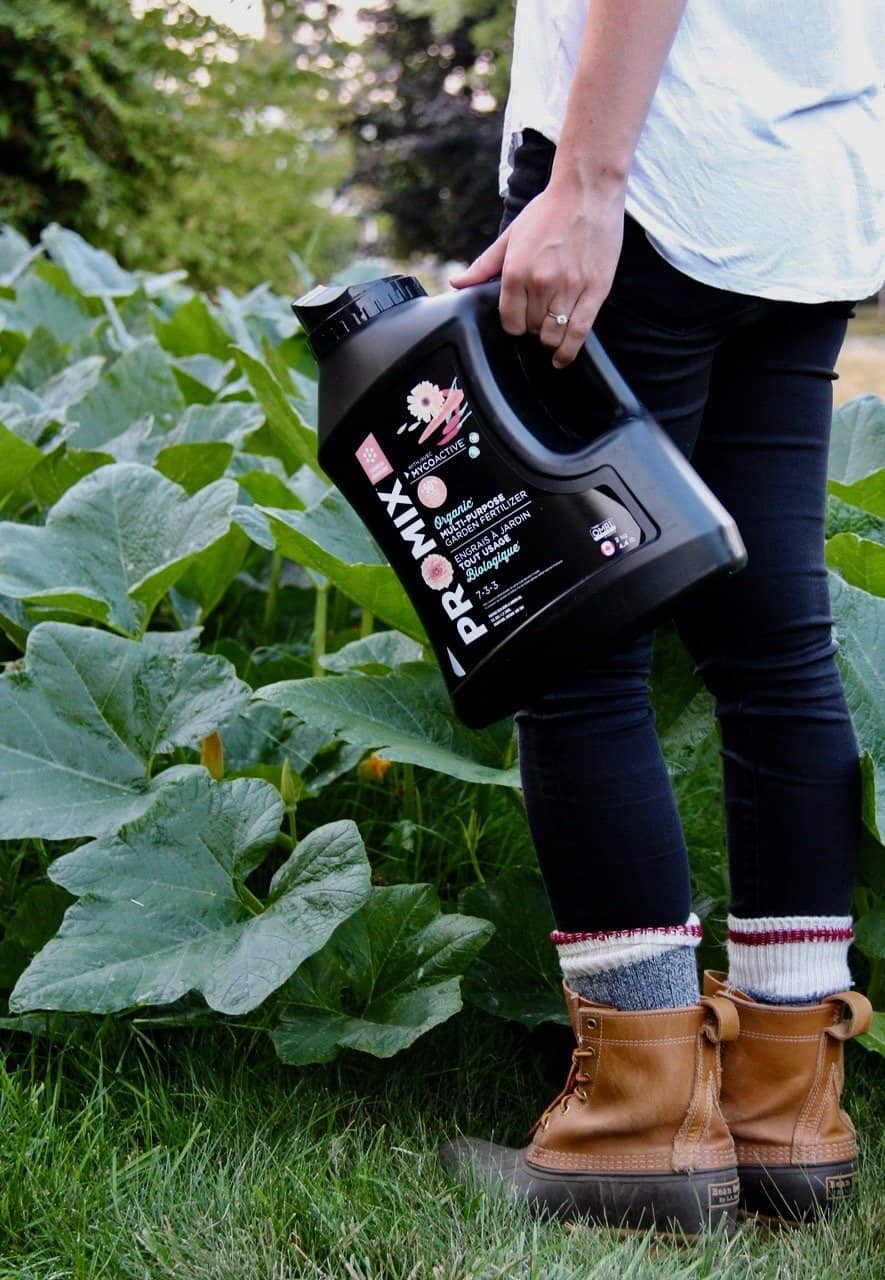
What makes a great organic fertilizer?
Fertilizers are materials applied to gardens to provide essential nutrients to plants. Although natural outdoor garden soil does contain essential nutrients, a good organic plant fertilizer will boost nutrient availability without harming your garden.
Organic fertilizers are sourced from specific naturally occurring materials, whereas chemical fertilizers are manufactured from synthetic chemicals. Organic fertilizers such as composted leaves and herbivore manure are derived from living organisms. Some inorganic materials, such as rock dust, can also be considered safe for organic gardening if they are sourced from nature instead of from manufactured industrial chemicals.
The best all-purpose organic fertilizers
Here are some of the best overall pre-mixed, all-purpose organic fertilizer options to consider:
Top All-Purpose Organic Fertilizers
- Espoma Garden Tone Organic Fertilizer 3-4-4 (USA)
- Dr. Earth Pure Gold Throw & Go Organic Fertilizer 2-2-2 (USA)
- Neptune Liquid Fish & Seaweed Fertilizer 2-3-1 (USA)
- Pro-Mix Granular Multi-Purpose Organic Fertilizer 7-3-3 (Canada)
- Gaia Green Organic All-Purpose Fertilizer 4-4-4 (Canada)
The all-purpose fertilizer options above can be a great way to increase the general nutrient availability in your garden soil. If you do buy fertilizer, confirm that it’s safe for organic gardening. Look for the OMRI-Listed logo or check the OMRI database (more about OMRI below).
The best organic fertilizers for vegetables
Here are some wonderful organic fertilizer options for vegetables, herbs, and other edible plants in the kitchen garden:
- Organic Compost – Add a layer of homemade compost for overall soil health (and don’t forget to add eggshells when making your compost!)
- Dr. Earth Organic Tomato, Vegetable, & Herb Fertilizer 4-6-3 (USA)
- Espoma Organic Tomato-Tone Tomato & Vegetable Fertilizer 3-4-6 (USA)
- Pro-Mix Organic Garden Fertilizer for Tomatoes, Vegetables, & Fruits 4-4-8 (Canada)
These kinds of organic fertilizers for vegetables are a great place to start, but there’s nothing like a proper soil test to show you exactly what nutrients your soil needs to produce delicious veggies. That data is worth getting! It’s hard to know what to buy or how to make organic fertilizer for vegetables if you’re not sure what ingredients your soil is missing in the first place.
Pro Tip: Don’t put Epsom Salt on your tomato plants (here’s why)
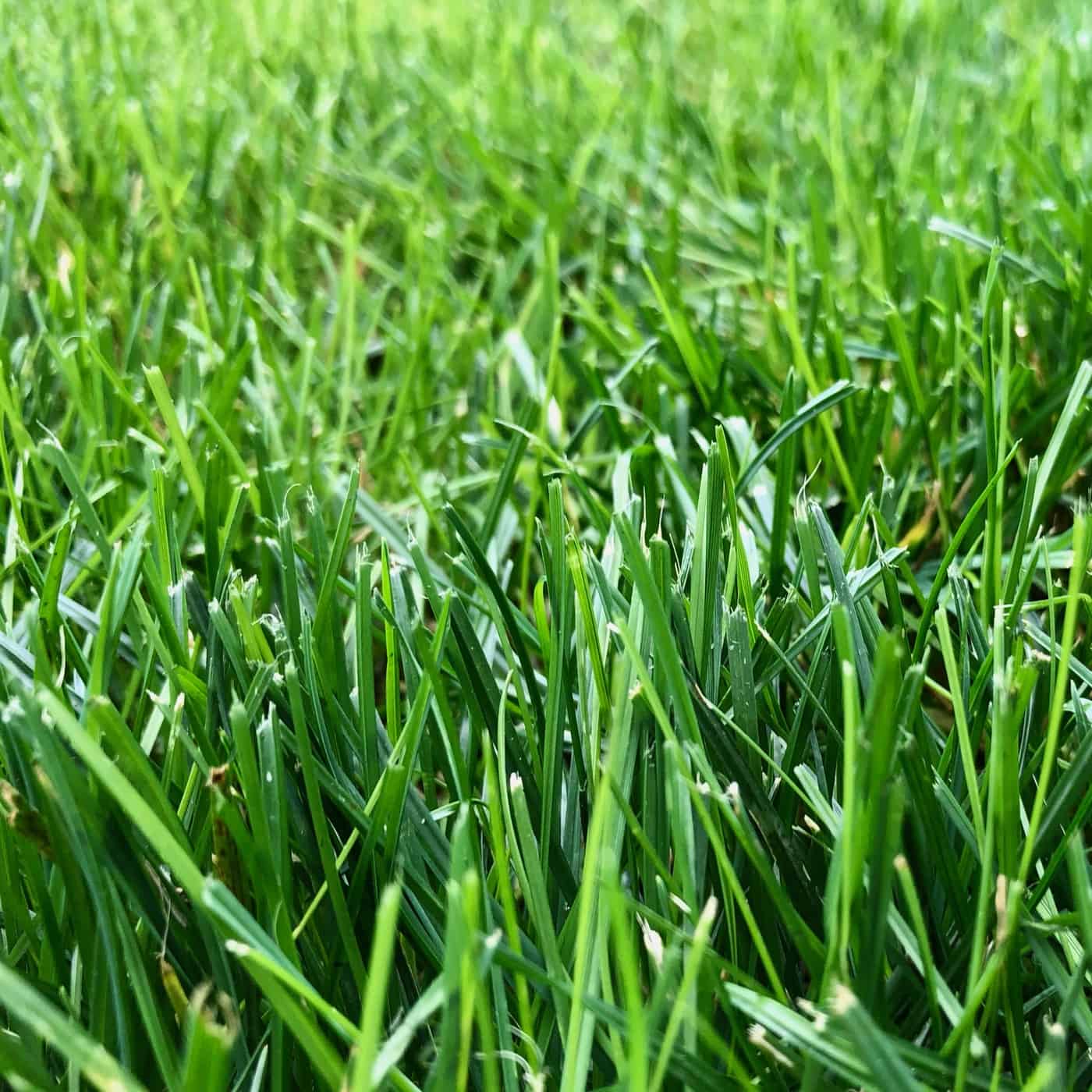
Great organic lawn fertilizer products
Organic lawn fertilizer often focuses on the nitrogen that grass craves. Lawns can fertilize themselves to some extent if you set your mulching mower blade high (3″) and mulch the grass clippings into the lawn. The clippings create their own nitrogen-rich organic lawn fertilizer that meets a portion of the lawn’s nitrogen needs.
To top up the nitrogen, choose an organic fertilizer formulated specifically for a lawn (with lots of nitrogen for healthy green blades of grass and little/no phosphorus helping out flowering plants).
Here are some of the best organic fertilizers for your lawn:
- Espoma Organic All-Season Lawn Food
- Scott’s Natural Lawn Food
- Dr. Earth Super Natural High-Nitrogen Liquid Lawn Food
- Safer Brand Lawn Restore (Ringer Lawn Restore)
- SoilTech MiCrop Organic Soil Builder
- Fox Farm Happy Frog Premium Lawn Fertilizer
- Suståne Organic Lawn Weed & Feed
More tips for effective organic lawn fertilizer
Organic lawn fertilizer is best applied in the spring and fall rather than in the heat of summer. A top-dressing of an inch of compost late in the fall will also boost soil health (the earthworms will love it).
Back to the importance of good soil testing, turf grasses prefer a slightly acidic soil pH. The grass won’t have optimal growing conditions if your soil is quite acidic or alkaline. Adjust soil pH with lime or sulfur.
Observe the weeds in your lawn as you apply the organic lawn fertilizer. Weeds thrive in lawns that have compact, acidic/alkaline, nutrient-poor soil. They also love frequent shallow watering and low mower blades. For instance, clover indicates a lack of nitrogen and air in the soil (I actually don’t mind clover… it’s cute, and it fixes nitrogen).
Addressing underlying problems will do more for the health of your lawn than simply applying fertilizer now and then. Organic, nutrient-dense, aerated soil that is deeply watered on an infrequent basis and mowed no shorter than 3″ is likely to produce a lush lawn.
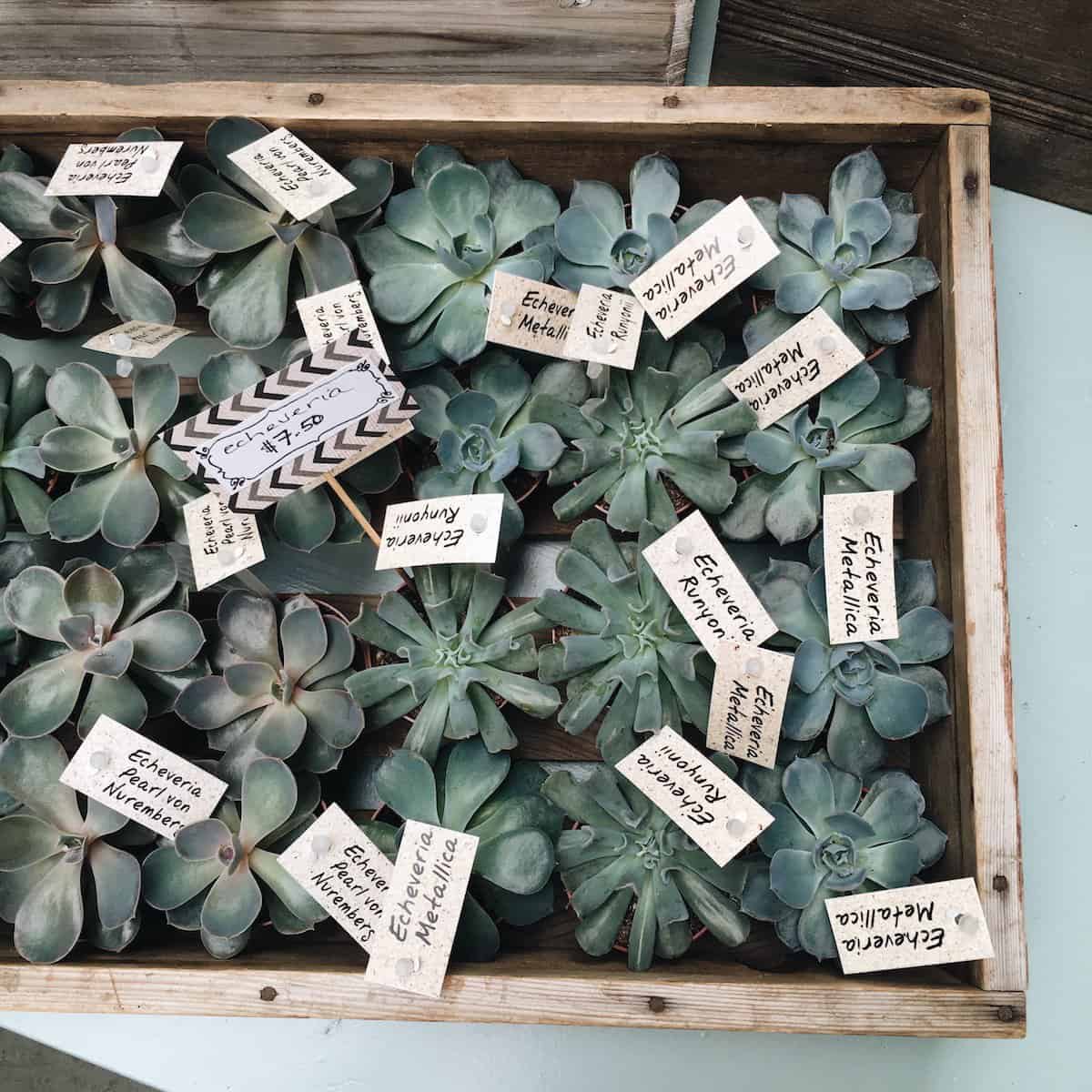
The best organic fertilizers for house plants
Here are some of the best organic fertilizer options for indoor plants:
- Joyful Dirt Premium Concentrated All-Purpose Organic Fertilizer Shaker
- Espoma Organic Indoor Plant Concentrated Plant Food
- EarthPods Premium Herb & Vegetable Plant Food Fertilizer Spikes
- PRO Organic All Purpose Fertilizer by Shin Nong (Vegan)
- TeaDrops Organic Liquid Orchid and Air Plant Food
- Harris Natural Fertilizer for Fiddle Leaf Figs
There are tons of specialized houseplant fertilizer products.
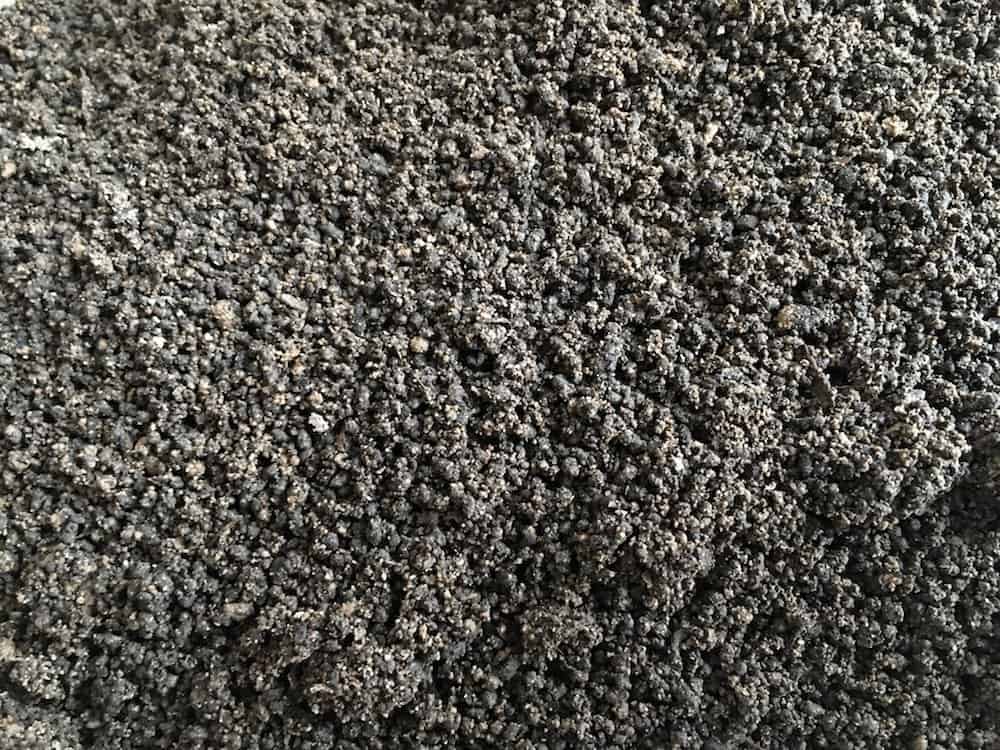
The best traditional natural plant foods
The following traditionally-used materials make excellent natural fertilizers for plants. The estimated NPK ratio for each material is also shown (explained below):
Traditional Natural Soil Amendments:
- Earthworm Castings 1-0-0
- Rock Dust 0-0-0.2
- Liquid Seaweed 0-0-1
- Kelp Meal 1-0-2
- Fish Fertilizer 2-4-1
- Composted Cow Manure 0.5-0.5-0.5
- Composted Chicken Manure 2-2-2
These materials and other types of natural fertilizers for plants can be found at most garden centers. Natural fertilizers and soil amendments can also be ordered online (which is nice if you prefer not to carry heavy bags home from a store). Be sure to research the nutrient profiles of the natural fertilizer for plants you’re buying so you can learn how to make organic fertilizer that suits your garden soil and crops.
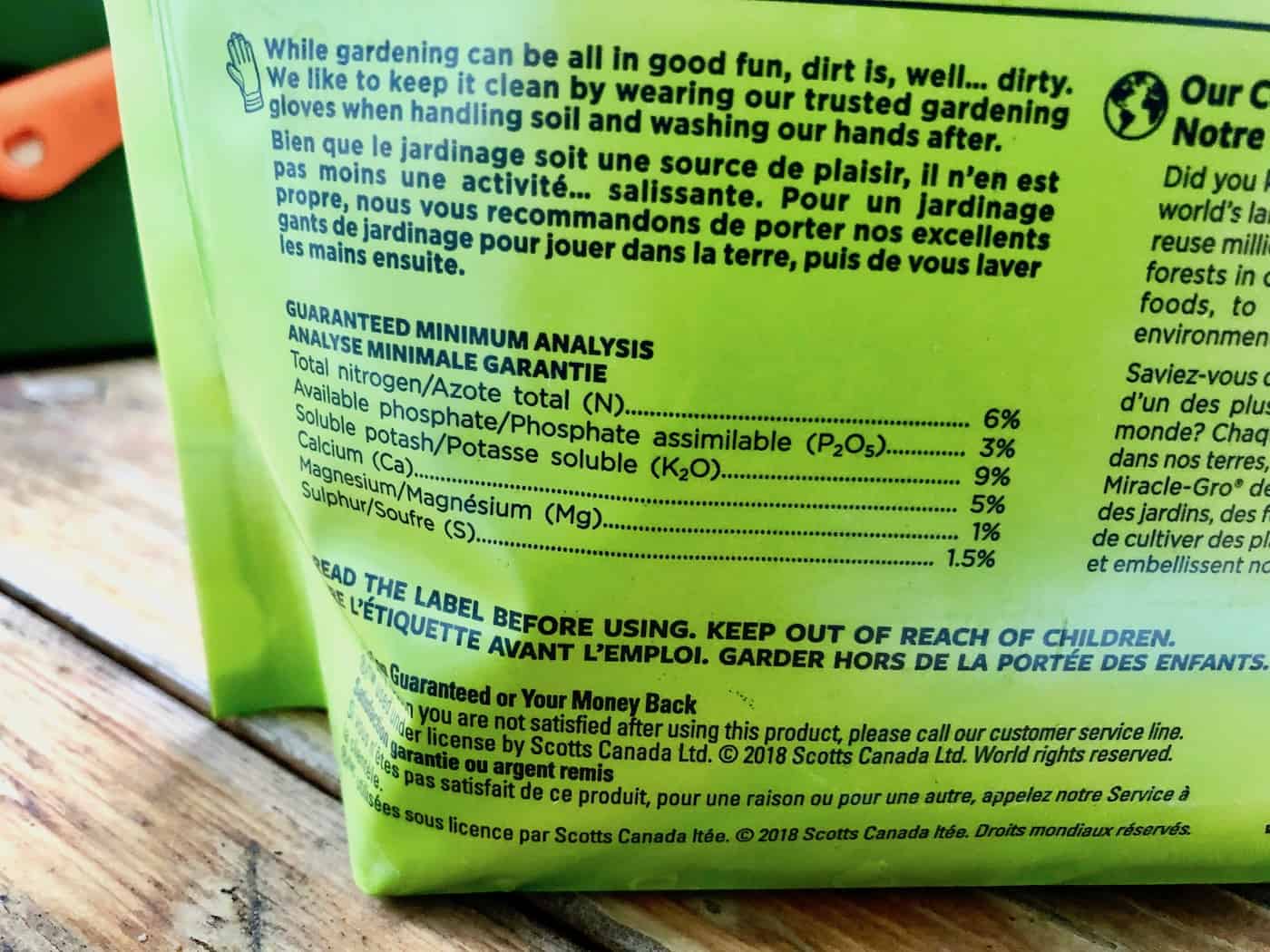
NPK ratios of organic fertilizer
Store-bought organic fertilizers list a ratio of three essential plant nutrients on the package. The NPK ratio lists the amounts of nitrogen, phosphorus, and potassium. The higher the numbers are, the stronger the concentration of nutrients is (but more is not always better. Really high numbers are more a marketing trick than they are useful).
Natural products generally show lower numbers in their NPK ratios when compared to synthetic chemical fertilizers. This is not a bad thing at all. Synthetic chemical fertilizers can be so concentrated that they can burn plants. They can also cause excess nutrient runoff into freshwater aquifers (terrible for the environment). You’re not necessarily getting less production for your money with a natural fertilizer for plants, but you are getting a safer product because of its slow and steady nutrient release.
Natural fertilizers for plants are generally applied in bulk when compared to synthetic fertilizers, so they really do need to have lower NPK digits to avoid burning plants. They are also biologically active, which can lead to variation in NPK ratio between batches. Because of these considerations, some organic fertilizers may not be labeled as “fertilizer” and may not show an NPK ratio. In these cases, look for “organic soil amendments.”
“Inorganic” materials as organic fertilizers
The word “organic” has a slightly different meaning in horticulture as compared to chemistry. Some fertilizers that are “inorganic” from a chemistry perspective (because they are not derived from living matter) are actually approved for organic gardening. Many mined minerals in their natural form can be considered acceptable for organic gardening. This includes rock dust, diatomaceous earth, and gypsum.
Likewise, some natural fertilizers for plants that would be considered “organic” to a chemist aren’t approved for organic gardening. This includes manure from carnivores, manure from herbivores that have not been adequately composted, and sewer sludge or biosolid products. Those garden fertilizers are generally unacceptable in home organic gardening because of the potential for pathogen and chemical contamination.
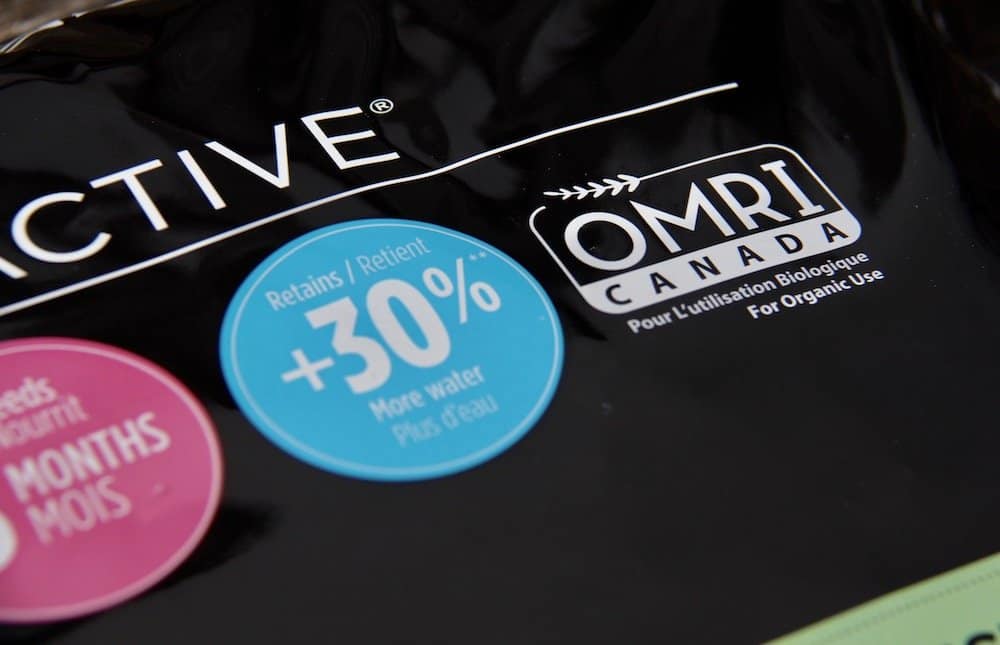
Organic fertilizers and OMRI listing
Always check to see if a product is safe for organic gardening before using it. In the USA and Canada, the most reliable way to check if a product is safe for organic gardening is to look it up in the OMRI database (from the Organic Materials Review Institute). Alternatively, check for the OMRI-listed logo when buying organic fertilizer at the garden center or online. For a quick organic garden fertilizer reference, check this list of acceptable and unacceptable products in an organic program from the Dirt Doctor.
Totally Not Scientific Fertilizer Rule of Thumb: Most organic fertilizers are brown and look like they’re made of composted manure. Most synthetic chemical fertilizers are brightly colored and look like they’re made of road salt or decorative beads. If it’s made of blue crystals or green beads, it’s probably not organic.
The best organic fertilizer for a home garden
Choosing fertilizer can be tricky unless you know what type of soil is in your garden. A garden soil test will give you a basic idea of the nutrients that your garden soil is lacking. It’s also nice to know what type of plants you’ll be growing, as different plants have different nutrient needs.
Either send a sample of your garden soil to a lab for analysis or use a quick at-home test kit. In the USA, your local extension office may offer soil testing. The soil test will help you make an informed decision about the nutrients that your soil is lacking. It’s hard to shop for organic fertilizer without knowing what you’re looking for. Your garden’s soil nutrient information is very affordable data that is well worth it (especially if you end up needing less fertilizer than you thought!).


